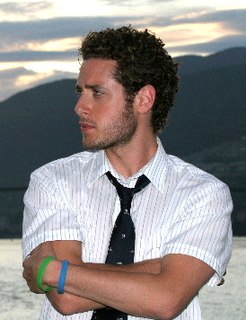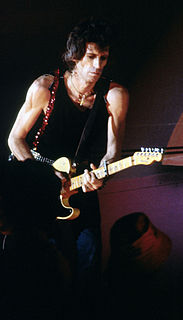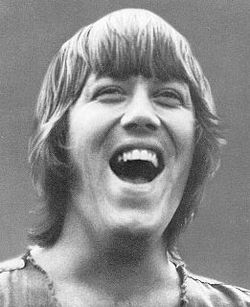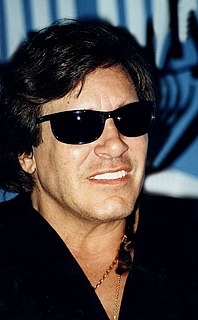A Quote by Michael Kiwanuka
Jimi Hendrix came on TV on this documentary and it was this African-American soulful black guy, playing an electric guitar, which I'd just started. And it just blew my head off. I had like an afro at the time, too. It was a bit all over the place. And it wasn't a thing to have an afro. No, that's kind of quite old school. You're supposed to have like a neatly cut shaped up haircut.
Related Quotes
The lesson this teaches and which every Afro-American should ponder well, is that a Winchester rifle should have a place of honor in every black home, and it should be used for that protection which the law refuses to give. When the white man who is always the aggressor knows he runs as great a risk of biting the dust every time his Afro-American victim does, he will have greater respect for Afro-American life. The more the Afro-American yields and cringes and begs, the more he has to do so, the more he is insulted, outraged and lynched.
Music really influenced me when I was growing up. I did go through a Jimi Hendrix phase. My hair was naturally quite afro, and I wore low-slung jeans with very high heels. Siouxsie and the Banshees had a lot to answer for. I was in a top hat with peacock feathers and thigh-high black boots. I was 17 -- old enough to know better.
He was Jimi Hendrix! He didn't sound like anybody else but himself. He was like Charlie Parker in his way of playing, he played well, he was a person that made waves. When you heard Jimi Hendrix you knew it was Jimi Hendrix, he introduced himself in his instrument... You know, many radio stations play records and a lot of the times they don't call out the names who you just listened to, but when they play Jimi Hendrix, you don't have to tell me, [you know] it's Jimi Hendrix.
In high school, my first thing ever was I played Tony in West Side Story when I was about 17. I was a really shy kid and I just like forced myself to learn how to sing this one month because I loved West Side Story so much and I somehow managed to get the role. I had an afro and glasses, and the guy who cast me goes, "All right, the first thing to go is the afro and the next thing, I'm going to buy you contacts and we're going to get you..." So he kind of molded me into what it had to - that's still probably the hardest role I've every played in anything, the most taxing role.
One guy can ruin an instrument. Jimi Hendrix, bless his heart - how I wish he was still around - almost inadvertently ruined guitar. Because he was the only cat who could do it like that. Everybody else just screwed it up, and thought wailing away (on the guitar) is the answer. But it ain't; you've got to be a Jimi to do that, you've got to be one of the special cats.
My dreams are always quite attainable, I wouldn't like to spend a lot of money on a car. I've got a mental block about splurging on something so visible like that. I could do it on a watch or something because that's quite personal and it isn't something that's on show all the time, but with a car everyone thinks you're a show-off. But one thing I would really like is a Ford Mustang - for me, that's the attainable dream. You look at it and you just think "F*** yes!" - you can hear an electric guitar solo playing in your head!
After months of playing air guitar to 'Free Bird', what really got me into guitar was watching a documentary about Jimi Hendrix and picking up the Woodstock soundtrack. Listening to his version of 'Star Spangled Banner' and 'Purple Haze.' My brother played acoustic guitar and, idolising him, I thought, 'I'm going to get a guitar.'
Michael Jackson fundamentally altered the terms of the debate about African American music. Remember, he was a chocolate, cherubic-faced genius with an African American halo. He had an Afro halo. He was a kid who was capable of embodying all of the high possibilities and the deep griefs that besieged the African American psyche.
By that point, I was about 12, 13 years old. I was this young black kid into rock music, which was kind of strange. People would always assume I'd be into like more modern R&B, which is a stereotype, but that was kind of what was expected. And I had all these guitar magazines of all these musicians that didn't look like me. So I assumed Jimmi Hendrix was one of those.
The Marshall guitar amplifier doesn't just get louder when you turn it up. It distorts the sound to produce a whole range of new harmonics, effectively turning a plucked string instrument into a bowed one. A responsible designer might try to overcome this limitation - probably the engineers at Marshall tried, too. But that sound became the sound of, among others, Jimi Hendrix. That sound is called electric guitar.


































